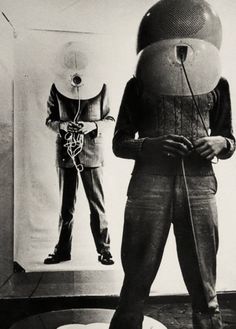 Attempting to narrow the wealth gap by having corporations make micropayments to citizens for their information seems to me a morally bankrupt system even if it achieves the unlikely and saves some from actual bankruptcy. There has to be a better way, though whether we’re unwittingly working for Facebook and Google for free or accepting bits of coins for our efforts, it’s hard to see how we avoid this privacy-obliterating system we’ve built. We live in a very anti-government time, but corporations are far more pervasive and invasive and will only grow more so as the Internet of Things becomes the thing. We may eventually miss Big Brother.
Attempting to narrow the wealth gap by having corporations make micropayments to citizens for their information seems to me a morally bankrupt system even if it achieves the unlikely and saves some from actual bankruptcy. There has to be a better way, though whether we’re unwittingly working for Facebook and Google for free or accepting bits of coins for our efforts, it’s hard to see how we avoid this privacy-obliterating system we’ve built. We live in a very anti-government time, but corporations are far more pervasive and invasive and will only grow more so as the Internet of Things becomes the thing. We may eventually miss Big Brother.
I’m looking forward to reading Nicholas Carr’s forthcoming book, Utopia Is Creepy, which has the best title ever, and I credit him with pointing me toward Shoshana Zuboff’s Frankfurter Allgemeine essay “The Secrets of Surveillance Capitalism.” As she writes, “the very idea of a functional, effective, affordable product as a sufficient basis for economic exchange is dying,” and what is replacing it is spooky as hell. The Harvard professor’s article is devastating not for imagining a dark future that might be if things go horribly wrong but for laying out where we’re headed if we just incrementally build on the status quo.
The opening:
Google surpassed Apple as the world’s most highly valued company in January for the first time since 2010. (Back then each company was worth less than 200 billion. Now each is valued at well over 500 billion.) While Google’s new lead lasted only a few days, the company’s success has implications for everyone who lives within the reach of the Internet. Why? Because Google is ground zero for a wholly new subspecies of capitalism in which profits derive from the unilateral surveillance and modification of human behavior. This is a new surveillance capitalism that is unimaginable outside the inscrutable high velocity circuits of Google’s digital universe, whose signature feature is the Internet and its successors. While the world is riveted by the showdown between Apple and the FBI, the real truth is that the surveillance capabilities being developed by surveillance capitalists are the envy of every state security agency. What are the secrets of this new capitalism, how do they produce such staggering wealth, and how can we protect ourselves from its invasive power?
“Most Americans realize that there are two groups of people who are monitored regularly as they move about the country. The first group is monitored involuntarily by a court order requiring that a tracking device be attached to their ankle. The second group includes everyone else…”
Some will think that this statement is certainly true. Others will worry that it could become true. Perhaps some think it’s ridiculous. It’s not a quote from a dystopian novel, a Silicon Valley executive, or even an NSA official. These are the words of an auto insurance industry consultant intended as a defense of “automotive telematics” and the astonishingly intrusive surveillance capabilities of the allegedly benign systems that are already in use or under development. It’s an industry that has been notoriously exploitative toward customers and has had obvious cause to be anxious about the implications of self-driving cars for its business model. Now, data about where we are, where we’re going, how we’re feeling, what we’re saying, the details of our driving, and the conditions of our vehicle are turning into beacons of revenue that illuminate a new commercial prospect.•
Tags: Nicholas Carr, Shoshana Zuboff
